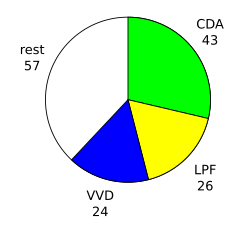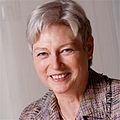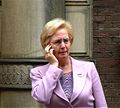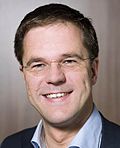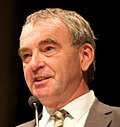
The People's Party for Freedom and Democracy is a conservative-liberal political party in the Netherlands. The VVD, whose forerunner was the Freedom Party, is a party of the centre-right, which promotes private enterprise and economic liberalism.
The Pim Fortuyn List was a right-wing populist political party in the Netherlands named after its eponymous founder Pim Fortuyn, a former university professor and political columnist. The party was considered nationalist as well as adhering to its own distinct ideology of Fortuynism according to some commentators.

The politics of the Netherlands take place within the framework of a parliamentary representative democracy. A constitutional monarchy, the country is organised as a decentralised unitary state. The Netherlands can be described as a consociational state. Dutch politics and governance are characterised by a common striving for broad consensus on important issues, within both of the political community and society as a whole.

Jan Pieter "Jan Peter" Balkenende Jr. is a Dutch politician of the Christian Democratic Appeal (CDA) party and jurist who served as Prime Minister of the Netherlands from 22 July 2002 to 14 October 2010.
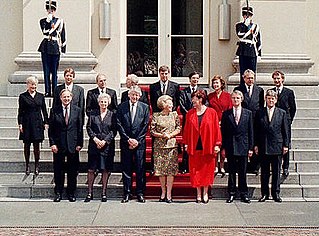
The second Kok cabinet, also called the second Purple cabinet was the executive branch of the Dutch government from 3 August 1998 until 22 July 2002. The cabinet was a continuation of the previous first Kok cabinet and was formed by the social-democratic Labour Party (PvdA), the conservative-liberal People's Party for Freedom and Democracy (VVD) and the social-liberal Democrats 66 after the election of 1998. The cabinet was a centrist grand coalition and had a substantial majority in the House of Representatives with Labour Leader Wim Kok serving as Prime Minister. Prominent Liberal politician Annemarie Jorritsma the Minister of Transport and Water Management in the previous cabinet served as Deputy Prime Minister and Minister of Economic Affairs, former Progressive-Liberal Leader Els Borst continued as Minister of Health, Welfare and Sport and served as Deputy Prime Minister.

The second Balkenende cabinet was the executive branch of the Government of the Netherlands from 27 May 2003 until 7 July 2006. The cabinet was formed by the Christian-democratic Christian Democratic Appeal (CDA), the conservative-liberal People's Party for Freedom and Democracy (VVD), and the social-liberal Democrats 66 (D66) after the election of 2003. The cabinet was a centre-right coalition and had a slim majority in the House of Representatives with Christian Democratic Leader Jan Peter Balkenende serving as Prime Minister. Liberal Leader Gerrit Zalm, a former Minister of Finance, served as Deputy Prime Minister and returned as Minister of Finance, while former Progressive-Liberal Leader Thom de Graaf served as Deputy Prime Minister and Minister without Portfolio for the Interior.

General elections were held in the Netherlands on 15 May 2002. The elections were amongst the most dramatic in Dutch history, not just in terms of the electoral results, as they were completely overshadowed by the assassination of leader Pim Fortuyn only nine days before election day.

General elections were held in the Netherlands on 22 January 2003.
This article lists some of the events that took place in the Netherlands in 2002.
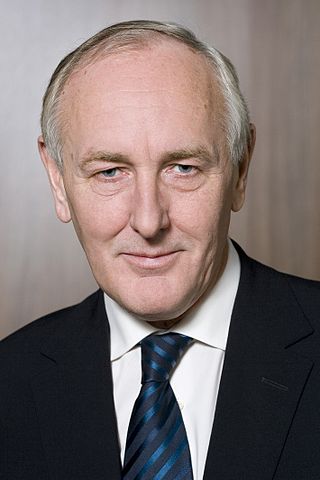
Johannes Wijnandus "Johan" Remkes is a Dutch politician and nonprofit director who served as Deputy Prime Minister of the Netherlands from 2002 to 2003 under Prime Minister Jan Peter Balkenende. He is a member of the People's Party for Freedom and Democracy (VVD).

General elections were held in the Netherlands on 22 November 2006, following the fall of the Second Balkenende cabinet. The election proved relatively successful for the governing Christian Democratic Appeal (CDA) which remained the largest party with 41 seats, a loss of only three seats. The largest increase in seats was for the Socialist Party (SP), which went from nine to 25 seats. The main opposition party, the social democratic Labour Party (PvdA) lost nine of its 42 seats, while the right-liberal People's Party for Freedom and Democracy (VVD) and the progressive liberal Democrats 66 lost a considerable portion of their seats, six of 28 and three of six, respectively. New parties, such as the right-wing Party for Freedom (PVV) of former VVD MP Geert Wilders and the animal rights party Party for the Animals (PvdD) were also successful, with the PVV winning nine seats and the PvdD winning two, thereby becoming the first animal rights group to enter a European parliament.

The third Balkenende cabinet was the executive branch of the Government of the Netherlands from 7 July 2006 until 22 February 2007. The cabinet was formed by the Christian-democratic Christian Democratic Appeal (CDA) and the conservative-liberal People's Party for Freedom and Democracy (VVD) after the fall of the second Balkenende cabinet. The caretaker rump cabinet was a centre-right coalition and had a minority in the House of Representatives with Christian Democratic Leader Jan Peter Balkenende serving as Prime Minister. Former Liberal Leader Gerrit Zalm continued as Deputy Prime Minister and Minister of Finance.

Atzo Nicolaï was a Dutch politician of the People's Party for Freedom and Democracy (VVD) and businessman.

The 2003 Dutch cabinet formation concerned the formation of a new cabinet after the 2003 Dutch general election held on January 22, 2003. It involved negotiations about which coalition partners would form a common programme of policy and it involved the division of the cabinet posts. After severe disagreements in the formation of a CDA-PvdA cabinet, a CDA-VVD-D66 cabinet was formed on May 27, 2003, with Balkenende as prime minister.

After the fall of the Second Balkenende cabinet on 30 June 2006, a cabinet formation took place in Netherlands. On 7 July, this resulted in the Third Balkenende cabinet. The minority cabinet was formed by Christian Democratic Appeal (CDA) and People's Party for Freedom and Democracy (VVD). It was a continuation of the Third Balkenende cabinet, but without ministers from Democrats 66 (D66).

Hermanus Philippus Johannes Bernardus Heinsbroek is a Dutch entrepreneur, media commentator, author and former politician who briefly served as Minister of Economic Affairs in 2002 in the first Balkenende cabinet. He was a member of the Pim Fortuyn List (LPF) party from August to October 2002, when he co-founded a new party, List New Politics, with Harry Wijnschenk. Their aim was to take part in the 2003 general election, although LNP eventually failed to find enough candidates to present a list. It was disbanded before the Electoral Council in February 2003.
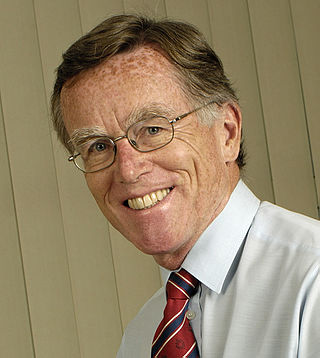
Eduard Jan Bomhoff is a Dutch economist and retired politician who served as Deputy Prime Minister and Minister of Health, Welfare and Sport for the Pim Fortuyn List (LPF) in the Cabinet Balkenende I from 22 July 2002 until 16 October 2002. He is currently an economics professor at the Monash University Malaysia Campus in Kuala Lumpur.

Roelf Hendrik de Boer is a retired Dutch politician and businessman who was a member the Pim Fortuyn List (LPF) and briefly served as Deputy Prime Minister from 2002 to 2003.

Philomena Bijlhout is a Surinamese-born Dutch former politician and television presenter.
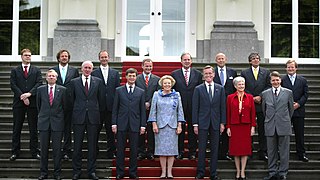
After the Dutch general election of 15 May 2002, a cabinet formation took place in Netherlands. This resulted in the First Balkenende cabinet. The coalition was formed by Christian Democratic Appeal (CDA), People's Party for Freedom and Democracy (VVD) and the Pim Fortuyn List (LPF).

